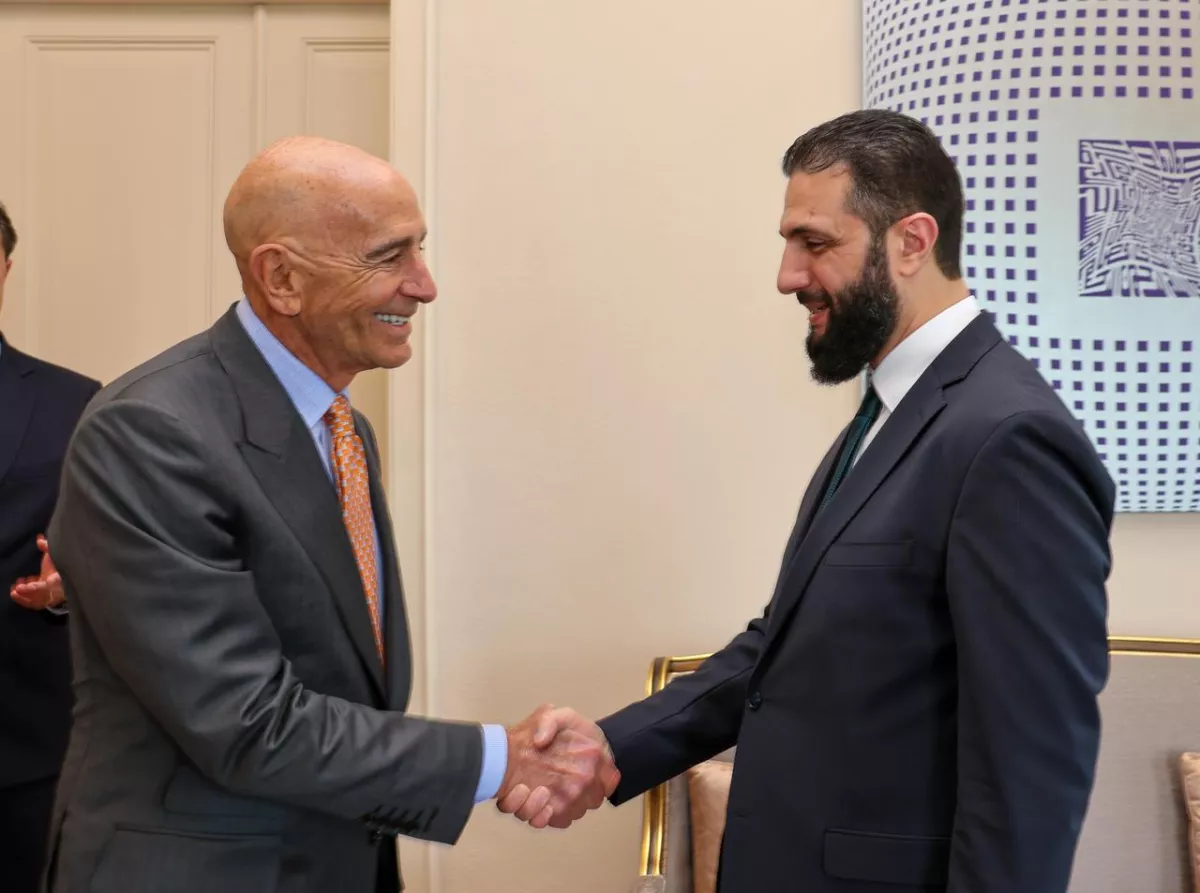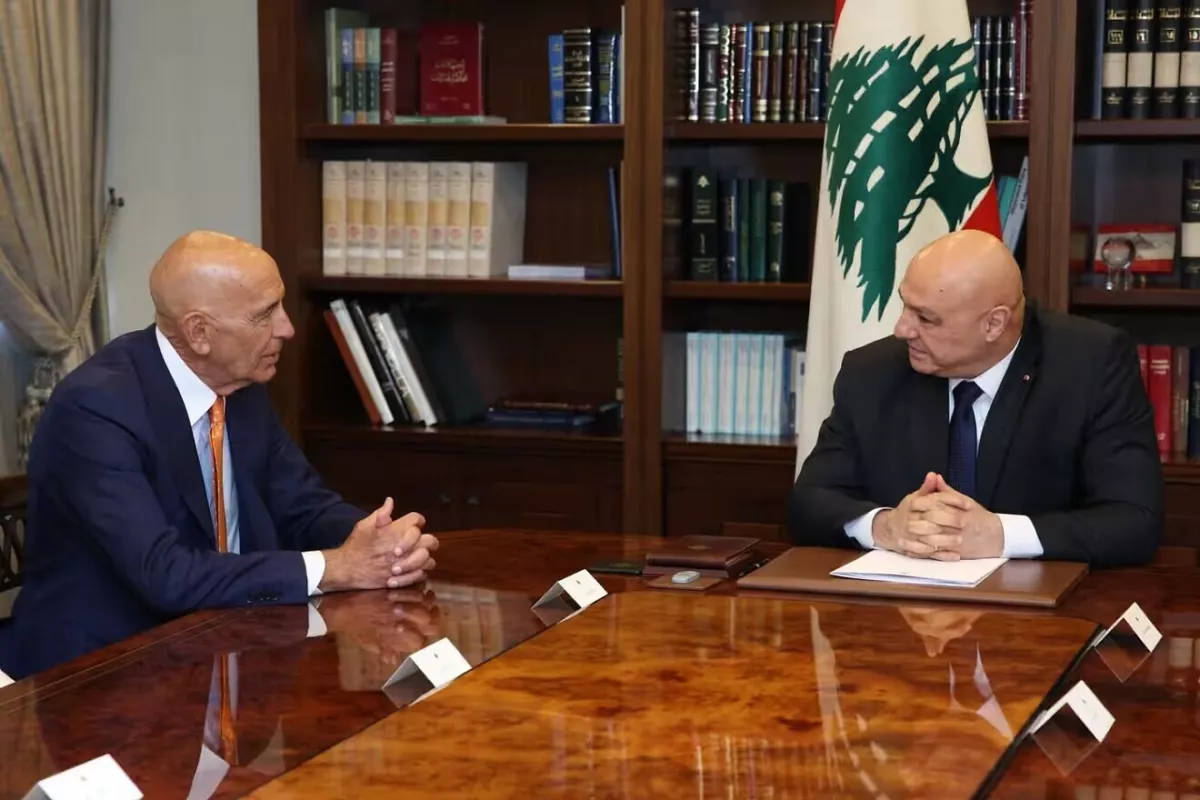Fine line between assisting, provoking Beirut over Hezbollah disarmament issue US envoy Barrack’s interview with The Nation
Lebanon risks being taken over by regional powers unless Beirut acts to address Hezbollah’s weapons stockpiles.
Tom Barrack, the US Ambassador to Türkiye, who was recently also appointed as Special Envoy for Syria has issued this stark warning about Lebanon’s future unless it resolves political gridlock. In an exclusive interview with The National, Barrack stressed that Lebanon is at a crossroads, squeezed between Israel, Iran, and a rapidly re-emerging Syria.
“You have Israel on one side, you have Iran on the other, and now you have Syria manifesting itself so quickly that if Lebanon doesn’t move, it’s going to be Bilad Al Sham again,” he told the publication on July 12, invoking the historical name for a region that included modern-day Syria, Lebanon, Jordan, Palestine, and parts of Türkiye.
A short time earlier, Barrack warned that if Lebanon fails to act decisively, others in the region will act in its place. Speaking to another publication, Arab News, he said on July 11, “If Lebanon doesn’t hurry up and get in line, everyone around them will,” and discussed the possibility of Hezbollah evolving into a purely political organization away from a military group that is widely designated as a terrorist organization around the world.
His message, however, was met with resistance in Beirut. In response, Barrack took to social media on July 12 to clarify his position, saying his earlier comments were meant to praise Syria’s progress rather than threaten Lebanon.
"My comments yesterday [July 11] praised Syria’s impressive strides, not a threat to Lebanon. I observed the reality that Syria is moving at light speed to seize the historic opportunity presented by the US president’s lifting of sanctions: investment from Türkiye and the Gulf, diplomatic outreach to neighbouring countries, and a clear vision for the future. I can assure that Syria’s leaders only want co-existence and mutual prosperity with Lebanon, and the United States is committed to supporting that relationship between two equal and sovereign neighbours enjoying peace and prosperity," his statement posted on X read.

As part of US efforts to address Lebanon’s deepening crisis, the US-born diplomat whose grandparents immigrated to America from Lebanon presented officials in Beirut last month with a proposal tying reconstruction aid and cessation of Israeli operations to Hezbollah’s full disarmament. The proposal aimed to address both national security and Lebanon’s dire economic situation, now in its sixth year of collapse.
In response, Lebanese officials submitted a seven-page document affirming state control over weapons and committing to disarm Hezbollah in southern Lebanon, but stopped short of agreeing to nationwide disarmament.
While acknowledging Beirut's reply as "responsive", Barrack remarked that significant points of contention remain. “There are issues that we have to arm wrestle with each other over to come to a final conclusion. Remember, we have an agreement … it was a great agreement. The problem is, nobody followed it,” he added, referring to earlier agreements.
When asked whether a full disarmament might lead to Hezbollah’s removal from the US terrorism list—similar to what happened with Hayat Tahrir al-Sham in Syria—Barrack said he couldn’t answer definitively. “I’m not running from the answer, but I can’t answer it,” he noted.

Barrack also addressed why Lebanese President Joseph Aoun has not publicly committed to a disarmament plan, explaining that the Lebanese leader is trying to avoid triggering a civil war. He also described the Lebanese Armed Forces (LAF) as the most trusted and neutral institution in the country, but one that operates under extreme budgetary constraints.
Despite their credibility, Barrack said the LAF is “on a shoestring budget”, and much of the security burden has fallen to UN peacekeepers in Lebanon (UNIFIL), which lack the ability to respond to serious military threats.
Barrack acknowledged that attempting to forcibly disarm Hezbollah could lead to internal conflict. As a compromise, he proposed a voluntary disarmament of Hezbollah’s heavy weaponry, including drones and rockets, overseen by a monitoring mechanism involving the US, France, Israel, and the Lebanese army.
Yet Lebanon’s army lacks the capacity to enforce such a plan, Barrack warned. “We don’t have the soldiers on the ground for the LAF to be able to do that yet, because they don’t have the money. They’re using equipment that’s 60 years old,” he explained.
From Hezbollah’s perspective, Barrack said the group believes it cannot trust the LAF for protection due to Israel’s continued bombardment and territorial occupation.
“Hezbollah is looking at it saying, ‘We can’t rely on the LAF. We have to rely on ourselves because Israel is bombing us every day, and they’re still occupying our land,’” he said, referencing the disputed “five points” border area.
To resolve the standoff and avoid escalation, Barrack stressed the importance of international support—especially for strengthening the LAF and establishing a secure framework for weapons management. However, he admitted that the US has struggled to secure funding from Gulf countries.
Although the US has reached out for assistance, Gulf states remain hesitant, having previously poured money into Lebanon with little oversight or reform.
“Why do the Gulf partners not want to do that? Because they’ve given so much money to Lebanon in the past that’s gone to the corrupt leaders. So they’re saying, ‘Yeah, we’re done,’” Barrack recalled.
He concluded by emphasizing the central dilemma: without targeted, corruption-proof international assistance, Lebanon’s army will remain too weak to stabilize the country or reduce Hezbollah’s influence.
By Nazrin Sadigova








